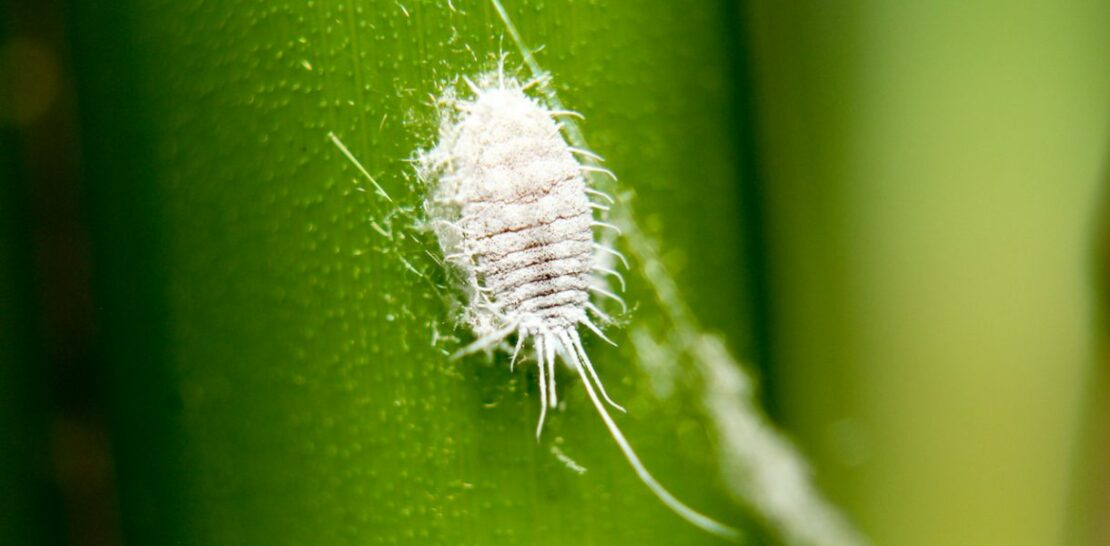Scale insects, those tiny, stubborn pests capable of causing significant damage to your garden, can be a frustrating and relentless problem for plant enthusiasts.
However, fear not, for there are a variety of natural and effective methods to eliminate these unwelcome guests and restore the health of your plants and shrubs.
In this comprehensive guide, we will delve into the world of scale insects, explore their characteristics, and provide you with actionable tips and techniques to keep your garden free from these pesky parasites.
Understanding the Enemy: An Introduction to Scale Insects
Before diving into the various methods for combating scale insects, it’s essential to understand the nature and characteristics of these pests. By doing so, you will be better equipped to identify and eliminate them effectively.
- Appearance: Scale insects are small, typically measuring between 1/16 and 1/8 inch in length. They come in various shapes and colors, but most have a rounded or oval shape and a waxy, protective coating that can make them difficult to spot. Some species also secrete a cottony, white substance called “honeydew.”
- Feeding habits: These tiny insects feed on plant sap, using their needle-like mouthparts to pierce the plant tissue and extract the nutrients they need to survive. As they feed, they excrete a sticky waste product called “honeydew,” which can lead to the growth of sooty mold on the affected plant.
- Reproduction: Most scale insects reproduce asexually, meaning they don’t need a mate to produce offspring. Females can lay hundreds of eggs, which then hatch into tiny, mobile nymphs called “crawlers.” These crawlers move around the plant until they find a suitable feeding site, where they will settle down and begin feeding, eventually becoming immobile and developing their protective scale covering.
- Damage: Scale insects can cause significant harm to their host plants, leading to yellowing or wilting leaves, stunted growth, and even plant death in severe cases. The honeydew they excrete can also attract ants and lead to the growth of sooty mold, further damaging the affected plant.
The Natural Arsenal: Tools and Techniques for Eliminating Scale Insects
In this section, we will explore several natural and effective measures for eliminating scale insects from your plants and shrubs. These methods focus on using ingredients and techniques that are safe for the environment, your plants, and beneficial insects while still being highly effective in eradicating scale insects.
- Manual Removal: One of the simplest ways to combat scale insects is through manual removal. This method involves using a toothpick, tweezers, or a similar tool to carefully remove the insects and their protective scales from the affected plant. While this may be time-consuming, it can be highly effective, especially when dealing with smaller infestations.
- Pruning: Pruning and removing heavily infested plant parts can help reduce the scale insect population in your garden, preventing further damage to your plants. Dispose of the pruned material properly to prevent the spread of scale insects to other plants.
- Soapy Water: A simple solution of dish soap and water can be an effective weapon against scale insects. Mix a few drops of dish soap with a quart of water and spray it on the affected areas of your plants. The soapy water will help dissolve the insects’ waxy coating and suffocate them, making it easier to remove them from your plants. Be sure to rinse the soap off after a few hours to prevent any potential damage to your plants.
- Neem Oil: Neem oil is a natural insecticide derived from the neem tree that can help control scale insects and other pests. Mix a few tablespoons of neem oil with a quart of water and spray it on your plants, focusing on the areas where scale insects are present. Neem oil works by disrupting the insects’ hormonal balance, making it difficult for them to feed, mate, and lay eggs, ultimately leading to their demise.
Enlisting the Help of Allies: Beneficial Insects and Other Natural Predators
Another highly effective and natural way to eliminate scale insects from your garden is to introduce beneficial insects and other natural predators that feed on these pests. By doing so, you will not only be reducingthe scale insect population but also promoting a healthy ecosystem within your garden that helps to keep these pests under control in the long term.
- Ladybugs: Ladybugs are well-known for their voracious appetite for aphids, but they are also effective predators of scale insects. Releasing ladybugs in your garden can help to control scale insect populations, as they will feed on the insects and their eggs, preventing further infestations. Many garden supply stores and online retailers sell live ladybugs for this purpose.
- Lacewings: Lacewings are another beneficial insect that preys on scale insects, as well as other pests such as aphids, mites, and whiteflies. Lacewing larvae are particularly effective, as they have a strong appetite for scale insects and can consume large quantities in a short period. Like ladybugs, lacewings can be purchased from garden supply stores or online retailers to release in your garden.
- Parasitic Wasps: Several species of parasitic wasps are known to target scale insects, laying their eggs inside the insects’ protective scales. When the wasp larvae hatch, they feed on the scale insect, eventually killing it. Introducing parasitic wasps to your garden can help to control scale insect populations and prevent future infestations.
- Predatory Mites: Some species of mites are natural predators of scale insects, feeding on the insects and their eggs. Introducing these predatory mites to your garden can help to control scale insect populations, as they will keep the pests in check by consuming them and their offspring.
Maintaining a Healthy Environment: Cultural Practices for Scale Insect Prevention
While it’s essential to have effective methods for eliminating scale insects once they’ve infested your plants, the best strategy for dealing with these pests is to prevent them from becoming a problem in the first place. By adopting certain cultural practices, you can create a garden environment that is less conducive to scale insect infestations and promotes the overall health of your plants.
- Proper Plant Selection: Choose plants that are well-suited for your garden’s specific conditions, such as sunlight, soil type, and moisture levels. Healthy plants are less susceptible to scale insect infestations and are better able to withstand any damage that may occur.
- Regular Monitoring: Regularly inspect your plants for signs of scale insects or other pests. Early detection is crucial in dealing with scale insects, as it allows you to take action before the infestation becomes too severe and causes significant damage to your plants.
- Plant Spacing: Ensure that your plants have adequate space to grow and develop. Overcrowding can create an environment that is more conducive to scale insect infestations, as it provides the pests with more opportunities to move from one plant to another and spread throughout your garden.
- Soil Health: Maintaining healthy soil is vital for the overall health of your plants and can help to prevent scale insect infestations. Proper soil management practices, such as adding organic matter and ensuring adequate drainage, can create an environment that promotes plant health and discourages pests like scale insects.
- Watering Practices: Overwatering or underwatering your plants can create stress, making them more susceptible to scale insect infestations. Be sure to water your plants according to their specific needs, providing consistent moisture without allowing the soil to become waterlogged or excessively dry.
- Fertilization: Overfertilizing your plants can lead to excessive growth of soft, tender tissue that is more attractive to scale insects. Be sure to use the appropriate type and amount of fertilizer for your plants, following the manufacturer’s recommendations and the specific needs of your plants.
In conclusion, dealing with scale insects can be a challenging and frustrating task for any gardener. However, by understanding the characteristics of these pests, employing a variety of natural and effective elimination methods, introducing beneficial insects and natural predators, and adopting preventative cultural practices, you can effectively protect your plants and shrubs from these unwelcome pests and maintain a healthy, thriving garden.




